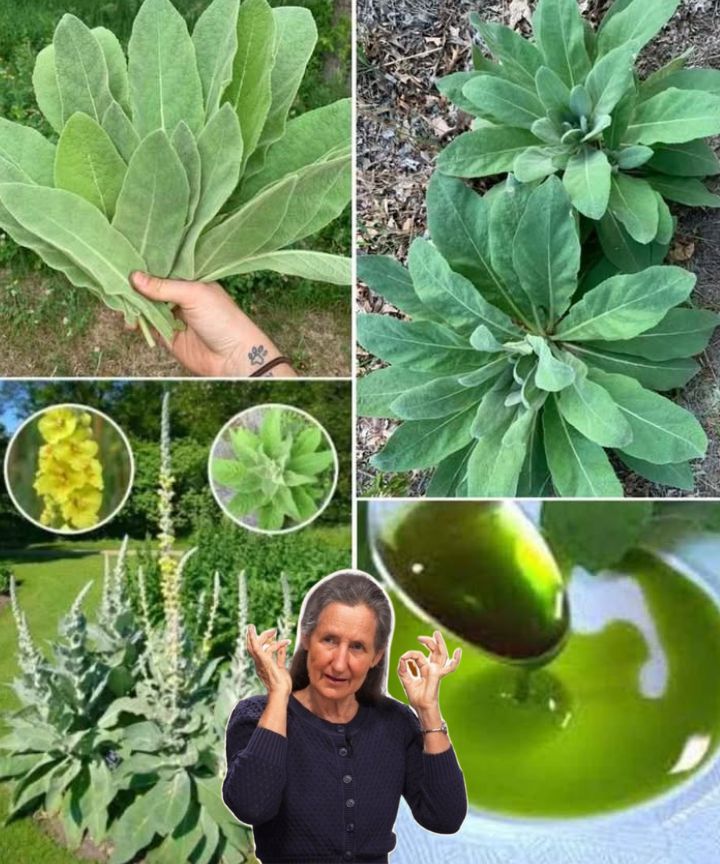Traditional and Everyday Uses Beyond Medicine
More Than Just a Herb—A Survival Tool
Historically, mullein leaves were used as lamp wicks, insulation for shoes, and even as fire starters. Its soft leaves also earned it the nickname “toilet paper of the woods” among hikers and campers. These practical uses highlight mullein’s incredible versatility.
In survival and outdoor settings, mullein is often foraged for its utility as well as its healing properties. Gardeners may also appreciate its ability to improve soil quality and attract pollinators like bees and butterflies.
How to Prepare and Use Mullein Safely
Mullein Tea Recipe for Respiratory Relief
To make mullein tea, use 1–2 teaspoons of dried leaves or flowers in a cup of boiling water. Let it steep for 10–15 minutes. Always strain the tea well using a fine mesh to remove any tiny plant hairs, which may irritate the throat.
Drink 2–3 cups per day when dealing with congestion or dry coughs. You can also combine mullein with other soothing herbs like licorice root or marshmallow for enhanced effects.
📌Thank you for reading the article.
Mullein Oil for Earaches
To make mullein-infused oil, pack dried or fresh mullein flowers into a glass jar and cover them with olive oil. Place the jar in a sunny spot for 2–4 weeks. After straining, store the oil in a dropper bottle. Use a few warm drops for minor ear discomfort.
Environmental and Garden Benefits
Attracts Pollinators and Improves Soil
Mullein’s bright yellow flowers naturally attract bees, butterflies, and other beneficial insects, helping to enhance biodiversity in your garden. The plant also helps prevent soil erosion due to its hardy root system and is known to thrive in poor or rocky soils.
By allowing mullein to grow in your space, you’re not only benefiting from its healing properties but also contributing to a healthier environment.
Important Precautions and Final Thoughts
Safety Tips for Using Mullein
Although mullein is generally considered safe, some precautions should be followed. Always strain tea well to remove fine hairs. Individuals with allergies to plants in the Scrophulariaceae family should avoid mullein.
As with any herb, consult your healthcare provider before using mullein if you are pregnant, nursing, or managing chronic medical conditions. This ensures that the herb won’t interfere with medications or worsen existing issues.
A Timeless Herbal Ally
Mullein is a gentle yet powerful herb that continues to earn its place in natural wellness routines. Its wide range of benefits—from respiratory health and ear care to skincare and digestion—makes it a must-have in every herbalist’s toolkit. Whether used as a tea, oil, or topical remedy, this plant has proven time and time again that nature truly provides some of the best healing solutions.
Start incorporating common mullein into your health regimen today and experience the soothing touch of this ancient herbal remedy.
